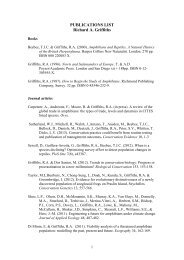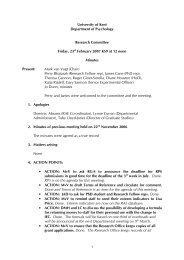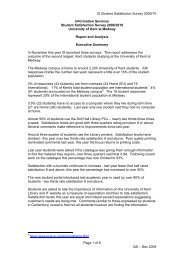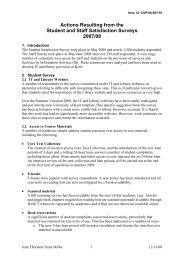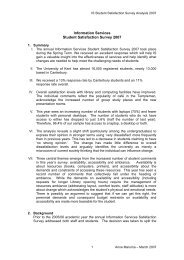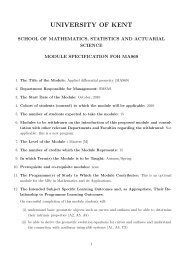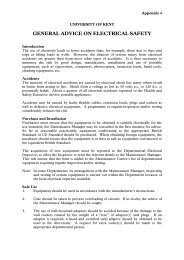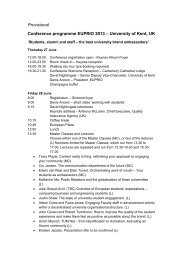cspdf, Job 181 - University of Kent
cspdf, Job 181 - University of Kent
cspdf, Job 181 - University of Kent
You also want an ePaper? Increase the reach of your titles
YUMPU automatically turns print PDFs into web optimized ePapers that Google loves.
unbearable. In fact, the Falmerayer trauma was never overcome, and even<br />
today Greek academics assume the same old defensive attitude towards the<br />
Tyrolian classicist. In Soutsos’ period, the question <strong>of</strong> the unity and historical<br />
continuity <strong>of</strong> the Greek nation was manifested mainly in the domain <strong>of</strong><br />
language. Greek academics and literati were split into three groups, each<br />
defending a different version <strong>of</strong> Greek (and therefore ‘Greekness’): the<br />
demoticists supported the ‘live’ language <strong>of</strong> the folk, adumbrating a fullyfledged<br />
romantic movement; the Hellenists advocated the ancient Greek<br />
version, identifying modern with ancient Greek identity; and the<br />
katharevousianoi (the ‘purified’), claimed that a mixture <strong>of</strong> the two should<br />
represent modern Greekness. It is interesting that Soutsos began as a<br />
demoticist, but eventually became an advocate <strong>of</strong> katharevousa, an artificial<br />
Greek language that would dominate the Greek bureaucratic regime till 1974.<br />
The merging <strong>of</strong> nationalist demoticism and ketharevousa statism determined<br />
the content <strong>of</strong> Greek national ideology and gave shape to the modern Greek<br />
nation-state. Soutsos’ interest in the Olympics should not be separated from<br />
his conviction that by resurrecting things ancient Greek he would recover this<br />
long-lost Hellenic modernity for his homeland.<br />
Soutsos’ Olympic ideal was shared by later generations <strong>of</strong> literati. Most<br />
prominent was Angelos Sikelianos, a demoticist, who sought to revive a<br />
version <strong>of</strong> the Olympics in Delphi in 1927. Interestingly, Sikelianos’ project<br />
had as an end the ‘alleviation <strong>of</strong> humanity from pain’ (Vitti, 1989: 339).<br />
Context binds Soutsos and Sikelianos: the first half <strong>of</strong> the nineteenth century<br />
is the period in which the Greeks discover their ‘Great Idea’, a nationalistic



